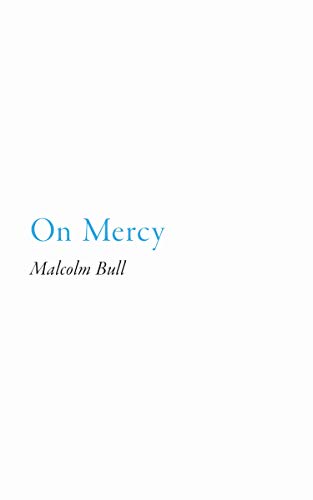(ThyBlackMan.com) Mercy is a concept that is lost to the leadership in our society, if it ever really existed. Our leaders sit high above us passing legislation that is not in our best interest. Our leaders allow citizens to live with poisonous water, subpar education, unjust judicial systems, and a disparity in wealth that guarantees poverty among the masses. Where is the mercy in this? Why doesn’t something within their humanity, and call to leadership, say this is not okay we must do better? Many can try to answer, and the answers will vary based on race, religion, gender, and many other factors. Malcolm Bull explains to the reading in his book “On Mercy” the necessity of mercy, and how it can act as the checks and balance to state and “justice” minded leadership.
“On Mercy” is a thorough look at the concept of mercy in leadership and politics over time. The book charts the shift in mercy based leadership to a leadership, and political, model that is based on the state and an idea of justice. “As Hobbes was perhaps the first to state explicitly, peace (i.e., not killing or being killed) is what politics, as opposed to war, is all about.” The author argues that this model of mercy once existed and was the expectation of leadership. He brings up the idea that leaders were trusted, and values, based on their ability to enact mercy in many given situations. The reader could question what then is considered mercy as all looking at history may not agree. The author references Seneca as the idea, or concept, on mercy that many “political theorists relied upon. “Seneca defines mercy (clementia) as restraining the mind from vengeance when it has the power to take it, or the leniency of a superior towards an inferior in fixing punishment”.

This is important because the author takes the reader through a philosophical argument(s) that battles for the need of a mercy that is missing. He argues furthers that mercy is also the only way we, as a human race, can save our planet. The argument may ring true in the minds of readers based on how they view mercy personally, and what they are aligned with politically in this country. One can argue said alignment would applaud mercy for some while continuing its lack of existence for others.
I enjoyed this book for what it argues regarding mercy in theory. However, I can’t ignore the philosophy as very western, and it doesn’t include all even if said mercy existed. In time periods where this mercy would have existed there are groups of people that never received said mercy. The eradication of injustice should not be mercy…it should be righting a wrong. I say that because some ideas of mercy could be considered as cruel, discriminatory, and a reflection of the deeper moral corrupt nature of a governing body. Politics for many here in America has never offered mercy as the injustice is so great.
So, though the books arguments are scholarly and sound they are being made against a history that for many has ever been just, nor merciful. With being said its an excellent read if one is studying political science, government, or just seeking to understand what has been deemed mercy and how that concept effects politics and government.
“On Mercy” by Malcom Bull can be found on Amazon or anywhere books are purchased.
Staff Writer; Christian Starr
May connect with this sister over at Facebook; https://www.facebook.com/christian.pierre.9809 and also Twitter; http://twitter.com/MrzZeta.

















Leave a Reply